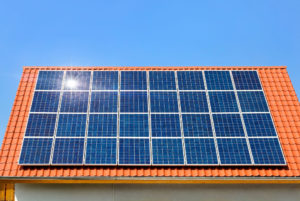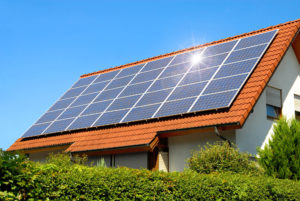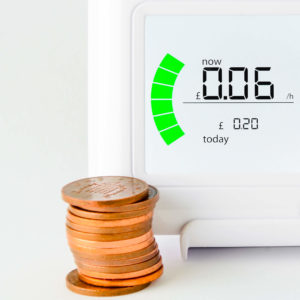Imagine redefining your home setup with energy-efficient solutions. You can have minimised electricity bills and contribute towards a greener planet. Still, is this process easy?
Going green has its pros and cons. The biggest issue in installing energy-efficient systems is the high initial investment. However, governments try to encourage homeowners to minimise their carbon footprint.
The Green Homes Grant was one such scheme that aimed at improving energy efficiency. Unfortunately, the scheme ended in March 2021. So, does this mean new applicants can no longer avail of government solar panel grants? No, definitely!
UK citizens can make the best use of schemes similar to the Green Homes Grant. This guide explains this ambitious energy scheme’s benefits, issues and future.
Contents
- 1 Key Takeaways
- 2 What was the Green Homes Grant?
- 3 Green Homes Grant Initial Forecasts
- 4 Green Homes Grant Eligibility and Expiry
- 5 What Did the Green Homes Grant Achieve?
- 6 Practical Challenges for Green Homes Grant
- 7 Benefits of Energy Efficiency Grant Schemes
- 8 The Next Alternatives to Green Homes Grant
- 9 Frequently Asked Questions
- 10 Case Study: Leveraging the Green Homes Grant for Energy Efficiency
- 11 Expert Insights From Our Solar Panel Installers About the Green Homes Grant
- 12 Discover the Power of Solar with Solar Panels Network
- 13 Final Thoughts
Key Takeaways
- The Green Homes Grant was a UK government scheme to improve home energy efficiency, offering funding for energy-efficient improvements such as insulation, solar panels, and more.
- Despite initial promising forecasts, the Green Homes Grant faced practical challenges, including delays in processing applications and slow voucher distribution, leading to lower-than-expected participation.
- Energy efficiency grant schemes like the Green Homes Grant are crucial for reducing carbon footprints, lowering greenhouse gas emissions, cutting utility bills, and generating employment. However, the program itself had shortcomings.
What was the Green Homes Grant?
Simply put, the Green Homes Grant was a scheme introduced by the UK government in 2020.
This scheme applied to domestic users. The scheme introduced vouchers as an auxiliary source to install energy-efficient improvements.
Overall, the scheme was promising and had various noticeable figures to lure homeowners.
- £1.5 Billion funding scheme
- Application for up to £5,000 funding
- Funding for low-income households £10,000
- Scheme active from September 2020 to March 2021
The Green Homes Grant Local Authority Delivery scheme was another auxiliary programme launched by the UK government.
This scheme had £0.5 billion in funds reserved for local authorities.
Green Homes Grant Initial Forecasts
An initial estimate of the success of any government scheme is crucial to work on various parameters.
The Green Homes Grant Voucher scheme had specific forecasts to generate jobs. Also, it aimed to move one step ahead to achieve zero carbon emissions.
These initial forecasts of the scheme were hugely promising.
- Support to at least 82,500 jobs
- Enabling around 600,000 households to save energy bills
- Customer assistance through the energy advice website.
The voucher system was instrumental in helping households delve into this government grant.

How Did the Voucher System Work?
The vouchers covered two specific funding amounts, as given below.
- 2/3rd costs of energy-saving home improvements
- £5,000 max government contribution
To avail of the vouchers, homeowners must visit the Simple Energy Advice website. Consequently, the website suggested measures for energy efficiency improvements.
The voucher system supported primary and secondary improvement measures. These measures are interrelated. Household owners could not apply for secondary funding without installing a primary measure.
Primary Measures
Basic energy-saving measures were included in the primary category. Homeowners could apply for the Green Homes Grant voucher to install these setups.
- Roof insulation
- Cavity wall insulation
- Under-floor insulation
- The heat pump (Air or ground source)
- Biomass boilers
- Solar thermal
You could use this grant to add an extra insulation setup, like an additional loft.
Example: If your insulation system costs £4,500 (approx.), the Green Homes Grant could provide funding of £3,000.
Secondary Measures
The secondary measures were the next step to avail the government funds. Moreover, these measures were focused on additional energy-saving improvements.
- Glazing
- Hot water tank insulation
- Draught proofing
- Heating controls
- Energy-efficient doors
Availing the grants required specific criteria for UK citizens.
Green Homes Grant Eligibility and Expiry
Currently, you can no longer avail of the Green Homes Grant. However, you can apply for government funding under specific conditions.
- Condition 1: You already have a Green Homes Grant voucher
- Condition 2: A TrustMark registered installer has completed the work
- Condition 3: You own a residential property
These conditions can redeem your Green Homes Grant voucher. However, you are not eligible for this funding if you have a new home without previous occupancy.
The Green Homes Grant voucher is non-transferable. Also, these vouchers carry a specific expiry period.
- Up to 31 August 2021 are valid for three months
- Vouchers after 31 August 2021 are valid up to 30 November 2021
Hence, existing voucher holders should redeem their grant papers before expiration.
What Did the Green Homes Grant Achieve?
Energy-saving schemes are government initiatives to boost our shift towards renewable energy sources.
The main emphasis of funds, incentives and tax reductions is to include a large population in reducing carbon footprint—similarly, the Green Homes Grant aimed at employment generation and a gradual shift to cleaner energy sources.
Irrespective of the forecasts, practical limitations and challenges led to the underachievement of this scheme. Here is what the grant could achieve realistically.
- Total vouchers: £35.9 million out of £1.5 billion (Until 31 March 2021)
- A benefit to 47,500 homes out of an estimated 6,00,000
- A total of 1,69,012 applications until 31 March 2021
The National Audit Office report on the Green Homes Grant has essential statistics about the performance of this scheme.
Moreover, the report explains some issues with this scheme that highlight its short tenure.

Practical Challenges for Green Homes Grant
It is vital to understand why a government funding scheme ceases to attract citizens if you are a consumer. Notably, some factors were detrimental to the Green Homes Grant in missing the original forecast numbers.
- Long waiting period: The processing of grant applications took considerable delay, led to an increase in complaints
- Slow voucher distribution: The administrators faced system challenges that led to the sluggish distribution of vouchers to eligible homeowners
- Complex Paperwork: Homeowners found it challenging to find a registered contractor to install the energy-saving systems
Also, the tradespeople involved in the scheme needed a TrustMark registration. This certification was impractical for specific firms and companies.
These challenges put a hold on the ambitious Green Homes Grant. However, experts believe that preparation and rectification of mistakes will see the return of similar schemes.
Benefits of Energy Efficiency Grant Schemes
Although the Green Homes Grant programme did not find the desired success, such schemes are becoming crucial.
With depleting resources and the need to reduce carbon footprint, government initiatives like the Green Homes Grant can help every person in a country. Here are some benefits of incentive projects.
Inclusion of Large Population Base
At this time, everyone needs to contribute towards a greener planet. Conventional energy sources like coal, gas and fossil fuels harm the environment.
Alternatives like solar, wind, and hydroelectric energy can prove lucrative in environmental and economic terms.
Still, families with low and middle-income groups cannot afford to install such renewable energy systems. The initial investment is impractical for most homeowners.
Programmes like the Green Homes Grant offer incentives to such families. Hence, with more people installing such systems, the load on non-renewable sources will decline.
Lowering Greenhouse Gases
Increased energy efficiency will directly lower the production of harmful greenhouse gases. Government schemes can target and reduce specific polluting energy sources.
Moreover, with more people shifting towards solar and other non-polluting sources, the planet will benefit eventually.
The whole purpose of energy efficiency schemes is to encourage and involve citizens of all facets of society. Hence, irrespective of their economic background, our planet can sustain itself without a rapid environmental decline.
Reduction in Utility Bills
Energy-efficient solutions prove lucrative in reducing electricity bills. Schemes that offer incentives can further decrease monthly expenditures towards energy.
This effect leads to the stabilisation of electricity prices. Thus, the economic condition of citizens improves.
All these benefits eventually lead to a dynamic economy and the reduction of pollutants and clean air.

Employment Generation
Implementing schemes like the Green Homes Grant requires a skilled workforce. These programmes lead to job generation.
Professionals having expertise in management, technology, commerce, etc., can get jobs related to energy efficiency schemes.
Also, the population can benefit from reduced energy imports from foreign countries. The shift to renewable energy sources can lead to new industries that require relevant skills.
The Next Alternatives to Green Homes Grant
With consumer demand and experts emphasising a better grant programme, the UK government must announce a better and well-planned scheme.
At this time, you can benefit from the following schemes.
- Energy Company Obligation 4 (ECO4) inc LA Flex
- Smart Export Guarantee (SEG)
- Solar Together
- Home Upgrade Scheme (HUG2)
- Home Energy Scotland Grant and Loan Schemes
- Welsh Government Warm Homes Nest Scheme
So, be prompt to check your eligibility for the active energy-related schemes. After all, nobody would want to miss out on government grants for a greener planet.
Frequently Asked Questions
Many queries about the Green Home Grant scheme need proper perusal. This section simplifies common questions related to the scheme and energy improvement.
Did Solar Panels Fall Under the Green Homes Grant?
Insulation, solar, and biomass boilers were prominent measures under the Green House Grant. So, if you applied and received the voucher in the active period, the government can pay up to 2/3rd of your solar panel installation amount.

How Can I Make My Home Energy Efficient?
Insulation, solar system installation, secondary heating source, draught-proofing, and energy-efficient fittings are some ways to save energy.
In short, reducing, recycling, and reusing is the mantra to decrease your carbon footprint. Also, be sure to upgrade your water heating system.
What Is the Meaning of Carbon Footprint?
Simply put, a carbon footprint is the amount of greenhouse gases we generate. Burning fossil fuels for electricity generation and transportation are the most significant sources of greenhouse gases.
At this time, China is the biggest contributor to CO2 generation.
Case Study: Leveraging the Green Homes Grant for Energy Efficiency
Background
At Solar Panels Network, we are committed to helping homeowners navigate government incentives for renewable energy and energy efficiency. This case study explores how a family in Northern England utilised the Green Homes Grant to enhance their home’s energy efficiency and reduce utility bills.
Project Overview
The family was interested in making their home more energy-efficient and environmentally friendly. They sought to take advantage of the Green Homes Grant, which provided funding for energy-saving measures. With the grant’s help, they aimed to install solar thermal panels and upgrade their home insulation.
Implementation
- Application Process: The family applied for the Green Homes Grant through the Simple Energy Advice website. They received vouchers covering two-thirds of the costs for installing solar thermal panels and additional loft insulation. The grant allowed them to proceed without the burden of full upfront costs.
- Installation of Energy-Efficient Solutions: The project included installing solar thermal panels to heat water and upgrading the loft insulation to enhance thermal efficiency. Our certified installers ensured that all work met the standards required for the grant, securing the family’s eligibility for the funding.
- Challenges and Solutions: The family faced delays in receiving the vouchers due to administrative bottlenecks, a common issue reported during the scheme. Despite these challenges, the installation was completed on schedule, with our team providing ongoing support and liaising with the grant administrators.
Results
- Energy Savings and Cost Reduction: The improvements significantly reduced the family’s reliance on gas for heating, resulting in lower utility bills. The solar thermal panels provided hot water, while the enhanced insulation reduced heat loss, increasing the home’s overall energy efficiency.
- Environmental Impact: By adopting these energy-efficient solutions, the family reduced their carbon footprint, contributing to broader environmental goals. The solar thermal system alone cut their CO2 emissions by approximately 0.5 tonnes annually.
- Financial Viability: The grant covered a substantial portion of the installation costs, making the project financially viable for the family. The savings on energy bills, combined with the initial funding support, meant the investment had a shorter payback period.
Summary
This case study highlights the practical benefits and challenges of participating in the Green Homes Grant. Despite some administrative issues, the grant provided valuable financial support, enabling the family to implement significant energy-saving measures. As a result, they enjoyed lower energy costs and contributed to a more sustainable future. At Solar Panels Network, we continue to assist our clients in accessing the best available incentives and making informed decisions about energy efficiency improvements.
Expert Insights From Our Solar Panel Installers About the Green Homes Grant
The Green Homes Grant was a great initiative to kickstart the adoption of energy-efficient solutions in homes. It offered significant financial support, making it more accessible for homeowners to reduce their carbon footprint and energy costs.
Energy Efficiency Consultant
Although the Green Homes Grant has ended, similar schemes like ECO4 and the Smart Export Guarantee continue to provide financial incentives for energy efficiency improvements. It’s crucial for homeowners to stay informed about these opportunities to maximise their energy savings.
Senior Solar Technician
Even with the challenges faced by the Green Homes Grant, it set an important precedent for future government initiatives. Ensuring proper planning and execution in such schemes is key to their success and to helping more households transition to renewable energy.
Chief Installation Officer
Discover the Power of Solar with Solar Panels Network
Are you navigating the world of solar installations? Look no further than Solar Panels Network, the UK’s trusted partner in harnessing the sun’s potential. Our dedication goes beyond just installations; we’re on a mission to transform how homeowners and businesses across the UK perceive and utilise energy. By choosing us, you’re reducing your carbon footprint and making a smart financial move that promises savings for years ahead. Contact us today and embark on your solar journey.
Final Thoughts
The Green Homes Grant is no longer an active government scheme. However, customers can redeem their vouchers before the expiry of the programme.
The whole world needs to take the issue of global warming seriously. At this time, solar energy is a promising alternative to fossil fuels. With well-planned incentives, the reach of renewable sources can increase at a brisk pace.
Hopefully, there will be better schemes related to energy efficiency grants soon. After all, the urgency to save our planet is now more alarming than ever.
About the Author
Solar Panels Network stands at the forefront of solar energy solutions, driven by a team of seasoned solar engineers and energy consultants. With over decades of experience in delivering high-quality solar installations and maintenance, we are committed to promoting sustainable energy through customer-centric, tailored solutions. Our articles reflect this commitment, crafted collaboratively by experts to provide accurate, up-to-date insights into solar technology, ensuring our readers are well-informed and empowered in their solar energy decisions.

